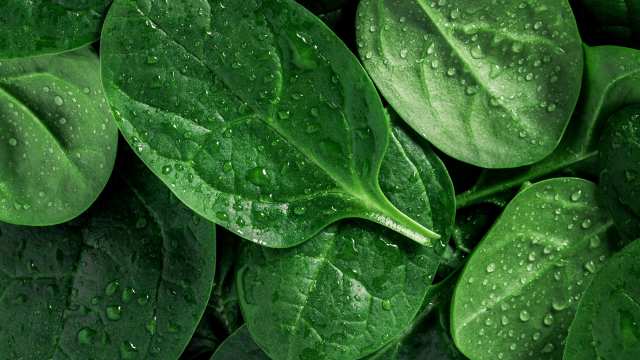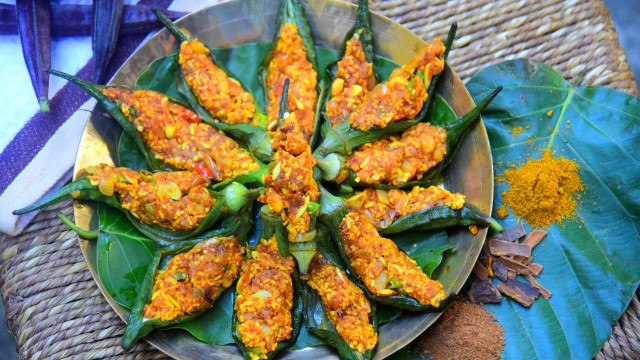Expand Your Practice: Doshas

Along your wellness journey, you may have come across the term doshas—maybe you've even taken a “Find your dosha” quiz online. According to Ayurveda, a 5,000-year-old Indian system of healing, prana (life force energy) manifests in our bodies and minds as three distinct energies — vata, pitta, and kappa — each with their own unique constitutions.
Ayurveda aims to foster holistic health by considering the physical, mental, and emotional aspects of wellbeing. A central theme of the practice is to create a balanced lifestyle that supports the flow of energy in the body to promote wholistic health. The three primary energy types, or doshas, are present in everyone to varying degrees. Your predominant dosha is called your prakriti (constitution). Although these concepts are based on ancient wisdom, modern science is starting to reflect that biochemical and cellular responses differ according to your prakriti. Prakriti may even be linked to our genetics, according to a genome-wide analysis published in Scientific Reports (2015).
The History of the Doshas
In the book Ayurveda: The Science of Self-Healing, renowned Ayurvedic physician Vasant Lad writes, “Ayurveda is the science of daily living, and this system of knowledge evolved from the rishis’ (seers) practical, philosophical, and religious illumination, which was rooted in their understanding of creation. They believed in the close relationship between man and the universe— how cosmic energy manifests in all living and non-living things.”
The foundations of Ayurveda are rooted in the principle that the universe is composed of five great elements, says author and ayurveda practitioner Geeta Vara. In her book Ayurveda: Ancient Wisdom for Modern Wellbeing she writes, “These five elements are known as the pancha mahabutas. They are Akash (ether/space), Vayu (air), Agni (fire), Jala (water), Prithvi (earth). One of the most practical cornerstones of Ayurveda is the idea that our physical characteristics and personality are born from the doshas, [which are] derived from varying combinations of the five elements in a condensed form that are present and functional in the body.”
Nikhila B. Hiremath, Ph.D., professor at the department of Swasthavritta and Yoga at the Sri Sri College of Ayurvedic Science and Research, further explains, “Historically, it is believed that dosha is a dynamic concept of Ayurveda – physiological and structural energy. The doshas are said to construct a person from characteristics of body stature, digestion, mental capacity to the extent of their lifespan. This is determined during conception.”
Factors such as your parents’ temperament and their body constitution can determine the child’s dosha makeup. “Like genes, the doshas decide the constitution of an individual. When conception occurs, one of the dosha overpowers the others. This can be a combination of two or all three doshas, and based on these combinations, the prakriti (constitution) is decided,” says Hiremath.
Defining a Dosha
The major types of dosha are: vata (ether-air), pitta (fire-water) and kapha (earth-water). “Few people have only one constitution or a single dosha," says Hiremath. Most people's energies are made up of various combinations. Equal amounts of all three doshas is very rare and considered ideal.
According to Roundglass meditation teacher and certified Ayurvedic wellness coach Greta Hill, “We are made of all the elements, but the way they measure will be different in each person. You may have the body type of one dosha and the mental constitution of a different dosha. Dosha identification is best done by a trained ayurvedic practitioner,” she says. Once you know your dosha constitution, an Ayurveda practitioner can help you make decision that will benefit your health, such as what foods to eat, to keep your doshas balanced, says Hiremath. When the doshas are out of balance, it can cause physical and emotional imbalances.
Dominant Doshas: Personality and Digestion Characteristics
Your doshas will help determine certain aspects of your mind and body. Here's what you need to know about each one:
Vata dosha
Personality “[Vata doshas] are governed by elements of space or air," says Hill. "Vata has a lot of movement—so they may come across as distracted but highly creative individuals. These people may often feel cold. Those with predominant vata dosha are fast talkers and thinkers. If this dosha is unbalanced, individuals can be prone to anxiety and worry.” Hiremath adds, “Those with vata temperament are intelligent and impulsive. They move fast.”
Digestive power “In Ayurveda, there is an understanding that like increases like. So if vata is made of air and space, then we need to find moist, dense, and warm factors to balance this out," says Hill. "Bring in earth elements to balance the air elements. A meal that consists of sweet potatoes and root vegetables would be ideal. Steamed food, tea, and broths would be ideal for this dosha.” Since people with predominant vata dosha move quickly, they need a lot more nourishment. Hiremath says, “Adding cream, butter, cheese, and foods with sweet and salty notes will keep vata dosha in check.”
Pitta dosha
Personality “Pittas are governed by fire — so you can expect them to have a lot of energy and sharp minds. They are charismatic and natural leaders. If their dosha is out of balance, they may be susceptible to irritation and anger,” says Hill. Hiremath adds, “They're adventurous, and can process thoughts quickly. They also burn out the same way as their mind and body works fast.”
Digestive power “Pita dosha needs sweet to tame the fire, along with astringent foods, and bitter greens,” says Hill. “Since their mind and bodies work fast. They need constant energy and nourishment. Sweet, bitter, and astringent food (like pomegranate) work will help boost energy for those with pitta dosha,” says Hiremath.
Kapha dosha
Personality “The kapha doshas are more grounded in temperament. This is the dosha best suited for meditation. This is a nurturing kind of energy. When out of balance, this dosha can bring about sadness and depression,” says Hill.
Digestive power “For those with kapha dosha, digestion is pretty slow. Foods should initiate movement: Astringent and bitter tastes work best. They should try to avoid sweet foods. They need light, easily digested food,” says Hiremath. “Lighter food with lots of greens, fresh produce, and pungent tastes that add heat work well for kapha dosha,” says Hill
Doshas and the Right Meditation Practice
Meditation begins in the mind; it is the next step of concentration. Using practices to balance your dosha can enhance your meditation practice. In addition, certain types of meditation practices may be particularly beneficial for certain doshas.
Vata Dosha
For a vata dosha individual, it is challenging to sit still and mediate. Hill suggests meditating in an environment that's warm and comfortable. "Dim light will make them feel more grounded," says Hill. Vata should try mantra meditation or affirmations, something that fully engages the mind and keeps focus will be helpful. Visualizations can help, too, says Hill, because vats have active, creative minds.
Pitta Dosha
Meditations that focus on the heart work well for pitta doshas, says Hill. “Meditations that focus on the energy and expansion of the heart work best. Breathing practices can help balance the dosha and cool them down. Pita has a bright mind and can benefit from mantra meditation,” she says.
Kapha Dosha
For a stable dosha like kapha, it is easier to feel grounded and calm, so an invigorating meditation can help provide balance. “For kapha doshas, energizing meditations work best," says Hill, "—ones that include activity like kapalabatti or walking meditations can help to generate heat and energy."
Key Takeaways:
- A balanced lifestyle supports the flow of energy in the body.
- There are three distinct prana in our bodies: vata, pitta, and kappa.
- Certain types of meditations are beneficial for doshas.










